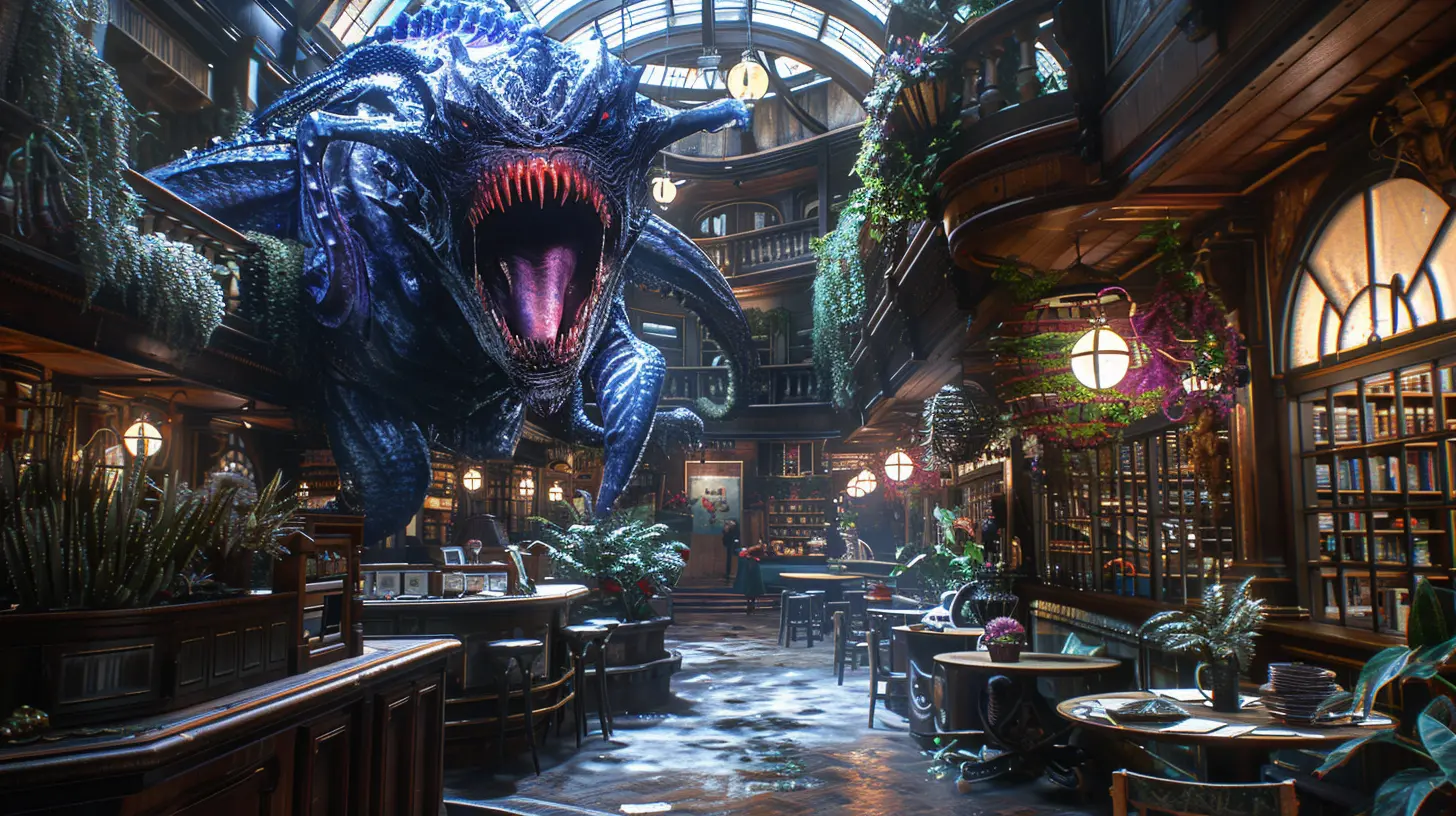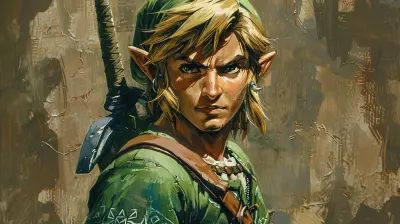The Role of Voice Acting in Immersive Game Storytelling
20 April 2025
When was the last time a character’s voice in a game sent shivers down your spine? Think back to moments where the hushed urgency, anger, or joy in a character’s tone made you feel like you were part of the story. That’s voice acting in action. It’s not just about lines being delivered; it’s about making those lines come alive, adding a rich layer of emotion that text or visuals alone often can’t capture. In gaming, voice acting has become the unsung hero of storytelling, transforming good narratives into unforgettable experiences. But how, exactly, does it do this?
Let’s dive into the fascinating world of voice acting and unpack its pivotal role in creating immersive game storytelling. Buckle up—this is going to be an adventure worth lending your ears to.
Breathing Life Into Virtual Characters
Imagine playing a game where the protagonist speaks in monotone, even during moments of peril. Awkward, right? Voice acting is what turns pixels and polygons into relatable, emotionally charged characters. A well-voiced character feels human, even if they’re an alien, robot, or medieval knight.Take Joel and Ellie in The Last of Us, for instance. Their voice actors—Troy Baker and Ashley Johnson—added layers of authenticity that you felt in your gut. Joel’s gruff, world-weary tone clashed beautifully with Ellie’s youthful defiance. Without their performances, would that game have hit as hard? Probably not.
Voice acting gives characters depth. It’s how the player connects emotionally. Whether it’s Kratos growling "BOY" in God of War or Cortana delicately navigating emotion in Halo, the voices leave a mark. You feel their pain, joy, fear, or anger. Long story short? Voice acting drags you out of your comfy couch and into the heart of the game.
Amplifying Emotional Impact
Gaming isn’t just mindless shooting and looting anymore. Modern games aim to tell stories that make you feel something. And guess what? Voice acting is the secret ingredient in that recipe. Sure, a tragic cutscene might look beautifully rendered, but it’s the voice acting that makes it stick with you emotionally.Did your jaw drop the first time you heard Arthur Morgan cough in Red Dead Redemption 2? That wasn’t just a sound effect—it was Roger Clark’s incredible voice work blending authenticity with the gravity of Arthur’s fate. Voice acting can reconcile complex human emotions, making them tangible. It’s the difference between watching a scene and living it.
Why does it work? Because voice actors have the power to convey nuance. A shaky voice hints at fear, a long pause oozes suspense, and a sharp snap of anger can leave you stunned. Visuals might hint at the mood, but voice acting makes you feel it.
Building Immersion, One Line at a Time
Games, by nature, are immersive. You’re controlling the story, after all. But that sense of immersion deepens when voice acting brings the narrative to life. Think of it like this: a well-written script is the skeleton; voice acting is the flesh.Open-world games like The Witcher 3 rely heavily on this dynamic. Geralt’s dry wit wouldn’t be nearly as engaging without Doug Cockle’s gravelly delivery. NPC interactions, side quests, even random villagers shouting, “Plague! Stay away!” as you stroll by—they all add to the authenticity. You don’t just feel like you’re playing a game; you feel like you’re in their world.
Great voice acting also adapts to your actions, keeping you in the moment. A snarky comment from a teammate in Mass Effect or a thank-you from a rescued NPC in Skyrim feels personal. It’s a reminder that every choice, every line, matters.
Voices Shape the Narrative Tone
Have you noticed how certain voice performances set the tone for the entire game? Imagine Batman: Arkham Asylum without Kevin Conroy’s iconic Batman voice or Mark Hamill’s cackling Joker. The mood would be completely different, wouldn’t it?Voice actors are masters at shaping tone. A gritty, no-nonsense delivery sets up a darker atmosphere, while playful banter can lighten the mood—even in tense moments. This balance is crucial for storytelling. Without it, the story risks becoming flat or mismatched.
Consider indie games like Hades. Logan Cunningham’s portrayal of Hades wasn’t just stoic; it was dripping with paternal disappointment, sarcasm, and gravitas. His voice was integral to the narrative’s tone, subtly reinforcing themes of family and struggle. That’s the power of great voice acting—it merges seamlessly with the story to elevate it.
Creating Memorable Moments
Let’s be real: some of gaming’s most iconic moments wouldn’t be as epic without brilliant voice performances. Think of the spine-chilling “Would you kindly?” twist in BioShock. Or the raw, emotional plea of Clementine in The Walking Dead. These moments are etched into gaming history because of voice acting.Why do these moments work? Because they’re unforgettable. The voice acting latches onto your emotions and creates a connection. It’s why, years later, you can still hear those lines in your head. Games with great voice acting don’t just tell stories—they etch memories.
Voice Acting vs. Silent Protagonists: The Debate
Now, I know what you’re thinking. “But some of my favorite games have silent protagonists!” True, there’s merit to that approach (hi there, Legend of Zelda fans), but it’s a different storytelling technique altogether. Silent protagonists let players project themselves onto the character, which works great for certain genres or gameplay styles.But voice acting? That’s for when the story demands a specific emotional journey. It’s no coincidence that many RPGs have fully voiced protagonists now. Players want to experience their story—complete with the highs, lows, and everything in between. Voice acting delivers that in spades.
It’s a Collaboration, Not a Solo Act
Voice actors aren’t working in isolation—they’re collaborating with writers, directors, and animators to nail every scene. It’s like a recipe. The script might be the ingredients, but the voice actor is the chef, deciding how to mix them for maximum flavor.Motion capture has also upped the game (pun intended). When a voice actor is physically acting alongside delivering lines, the performance becomes even richer. Just look at Uncharted 4. Nolan North’s voice acting combined with motion capture breathed life into Nathan Drake, making him one of gaming’s most relatable adventurers.
Voice Acting and Diversity in Gaming
A quick but crucial note here: voice acting also gives representation the spotlight it deserves. In a world that’s becoming more inclusive, diverse characters need diverse voices to bring them to life authentically. Games like Celeste and Life is Strange prove that authentic performances resonate deeply with players.This push for diversity also opens the door for more voices—literally. Voice actors from different ethnicities, genders, and backgrounds bring fresh, authentic perspectives to gaming. And that, my friends, is what makes stories more human.
The Future of Voice Acting in Gaming
What’s next for voice acting in games? With emerging tech like AI-generated voices, some people worry that voice actors could be replaced. But let’s be real—can a machine truly replicate the raw emotion of a human voice? Highly doubtful.Instead, we’re likely to see voice acting evolve alongside technology. More nuanced performances, real-time voice interaction with players, and deeper integration into gameplay are just the beginning. One thing’s for sure: as games continue to grow as an art form, voice acting will remain at its heart.
Final Thoughts
Voice acting isn’t just a cherry on top of video game storytelling—it’s the glue that holds the narrative together. It molds characters, enhances immersion, and delivers emotional punches straight to the heart. Whether it’s a AAA blockbuster or an indie gem, great voice acting transforms a game from a fun pastime into something truly unforgettable.Next time you’re playing, take a moment to appreciate those voices. They’re not just reading lines—they’re creating worlds, building connections, and telling stories that will stay with you long after the credits roll. And that, my friend, is the undeniable power of voice acting in immersive game storytelling.
all images in this post were generated using AI tools
Category:
Voice Acting In GamesAuthor:

Tayla Warner
Discussion
rate this article
5 comments
Bryson Lopez
Voice acting elevates gaming—it's the heartbeat of immersion!
May 5, 2025 at 4:50 AM

Tayla Warner
Absolutely! Voice acting truly brings characters to life, enhancing emotional connections and deepening player immersion in the game's narrative.
Tia McKnight
Oh sure, because who needs pixel-perfect graphics or gripping gameplay when we can just sit back and listen to a bunch of folks talk!
May 2, 2025 at 5:08 PM

Tayla Warner
Voice acting adds depth and emotional connection, enhancing storytelling and immersion—even without pixel-perfect graphics.
Kristy Perry
Voice acting is crucial in immersive game storytelling, as it enhances character depth and emotional engagement. Skilled performances can transform dialogue into impactful experiences, making players feel more connected to the narrative and its characters.
April 29, 2025 at 5:04 PM

Tayla Warner
I completely agree! Voice acting truly elevates game storytelling, adding layers of emotion and depth that resonate with players, making the narrative more engaging and memorable.
Thorne Mercado
Voice acting: the secret sauce that turns pixelated heroes into heartthrobs! 🎮✨ Without those melodious voices, we'd just be staring at colorful blobs with no feelings... and where's the fun in that?!
April 28, 2025 at 3:58 AM

Tayla Warner
Absolutely! Voice acting adds depth and emotion, transforming characters into relatable heroes and enriching the gaming experience. It's an essential ingredient for immersive storytelling!
Melody Ramirez
Great insights! Voice acting truly enhances storytelling in games, making characters more relatable and the experience much more immersive. Thank you!
April 27, 2025 at 3:04 PM

Tayla Warner
Thank you for your kind words! I'm glad you found the insights valuable. Voice acting really does bring characters to life and elevates the overall gaming experience.




